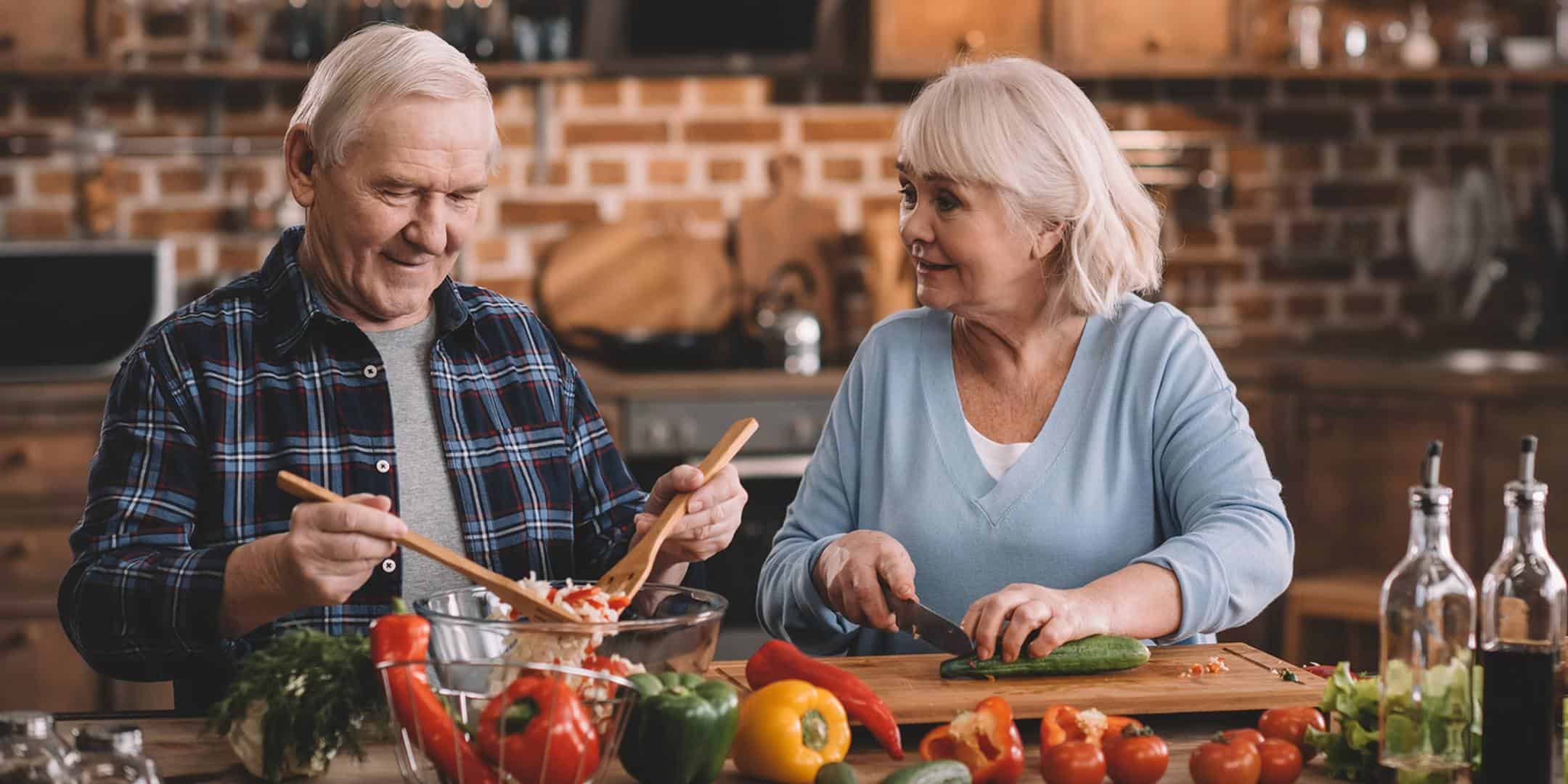As we age, our nutritional needs and overall wellness become increasingly important factors in maintaining a high quality of life. Nutrition and wellness are vital in senior living, serving as a recipe for healthy aging. This blog will explore senior nutrition and wellness’s key components and how they contribute to a fulfilling and vibrant later life.

Balanced Diet: The Foundation of Senior Nutrition
A balanced diet is the cornerstone of senior nutrition. As we age, our metabolism slows down, and our bodies may require fewer calories. However, the need for essential nutrients such as vitamins, minerals, fiber, and protein remains just as critical. Seniors should focus on nutrient-dense foods like fruits, vegetables, whole grains, lean proteins, and healthy fats to get the necessary vitamins and minerals.
A balanced diet can help prevent chronic health conditions common in seniors, such as heart disease, diabetes, and osteoporosis. It can also support cognitive function and maintain energy levels, contributing to a more active and engaged lifestyle.
Hydration: Staying Well Watered
Staying hydrated is vital at any age, but it becomes even more crucial for seniors. Dehydration can lead to a range of health issues, including urinary tract infections, kidney problems, and cognitive decline. Seniors may have a reduced sense of thirst, making it essential to consciously drink enough water throughout the day.
In senior living communities like fairviewcourt.co.uk, staff and caregivers often monitor residents’ hydration levels to ensure they receive adequate fluids. Providing water-rich foods like fruits and vegetables and offering hydration reminders can also be effective strategies for maintaining proper hydration.
Individualized Meal Plans: Catering to Unique Needs
One size does not fit all when it comes to senior nutrition. People’s dietary requirements may differ based on age, medical conditions, and personal preferences. Senior living communities recognize the importance of individualized meal plans to cater to these unique needs.
Registered dietitians are key in assessing residents’ dietary requirements and creating customized meal plans that address specific health concerns. Whether managing diabetes, accommodating food allergies, or promoting weight maintenance, personalized nutrition plans are crucial for optimal senior wellness.
Social Interaction: The Wellness Booster
Wellness in senior living extends beyond just physical health; it also includes emotional and mental well-being. Social interaction is vital to senior fitness, as it can combat loneliness and isolation, common concerns in the elderly population.
Senior living communities often provide a range of activities and opportunities for residents to engage with their peers. From group exercise classes and book clubs to communal dining, these interactions contribute to a sense of belonging and purpose, ultimately enhancing overall wellness.
Regular Exercise: Staying Active and Mobile
Physical activity is essential for seniors’ muscle mass, balance, and mobility. Regular exercise can help prevent falls, reduce the risk of chronic conditions like arthritis, and improve overall cardiovascular health. It also boosts mood and cognitive function.
Senior living communities typically offer fitness programs tailored to residents’ abilities and preferences. These programs may include gentle yoga, walking groups, water aerobics, and strength training, all of which can be adapted to individual fitness levels.
Medical Support: A Comprehensive Approach
Access to healthcare services is another critical element of senior wellness. Senior living communities often have on-site medical staff or partnerships with healthcare providers to ensure that residents receive medical attention and support. Regular check-ups, medication management, and health education are integral components of a comprehensive approach to senior wellness.
Conclusion
Nutrition and wellness are the key ingredients for healthy aging in senior living. A balanced diet, proper hydration, individualized meal plans, social interaction, regular exercise, and access to medical support collectively contribute to a fulfilling and vibrant later life. By prioritizing these aspects, seniors can age gracefully and enjoy a high quality of life in their golden years.